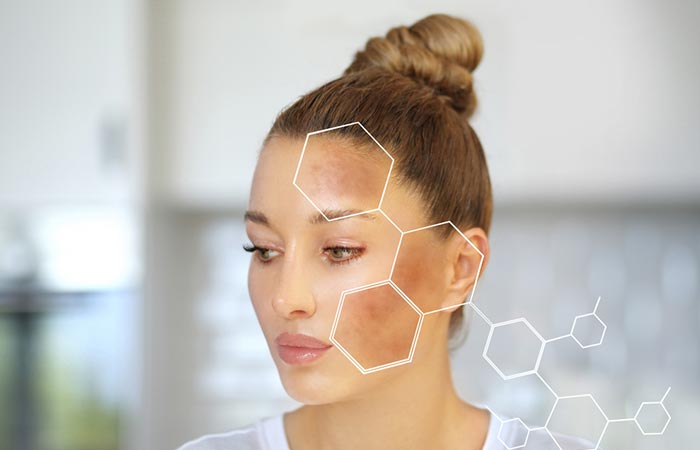How to Get Rid of Dark Spots on the Face

Nunc vivamus nam vitae ut faucibus metus pretium nisl. Elementum sed tincidunt nec aliquam tempus. Neque pharetra vitae, mauris malesuadafelis donec eu sit nisi. Accumsan mauris eget convallis mattis sed etiam scelerisque.
How to Get Rid of Dark Spots on the Face
Reasons
Dark spots on the face are a common skin concern that can cause self-consciousness and frustration for many individuals. These pesky spots, also known as hyperpigmentation, are usually harmless but can be caused by various factors. Understanding the reasons behind the appearance of dark spots is the first step towards finding effective solutions.
Sun Exposure
Excessive sun exposure is one of the primary culprits behind the formation of dark spots. When the skin is exposed to the sun’s harmful UV rays, it triggers the overproduction of melanin, the pigment responsible for giving color to our skin. Over time, this can lead to the development of uneven skin tone and dark spots.
Hormonal Changes
Fluctuations in hormone levels can also contribute to the formation of dark spots. Women, especially during pregnancy or while taking hormonal contraceptives, may experience an increase in pigmentation due to hormonal imbalances. This condition, called melasma, often results in the appearance of dark patches on the face.
Post-Inflammatory Hyperpigmentation
Dark spots can also be a result of post-inflammatory hyperpigmentation, which occurs after skin inflammation or injury. Acne, eczema, or any other form of skin trauma can lead to the production of excess melanin, causing persistent dark spots that linger long after the initial inflammation has subsided.
Aging
As we age, the skin undergoes various changes, one of which is the increased production of melanin in certain areas. This can lead to the development of age spots, commonly known as liver spots, which are darker patches that tend to appear on areas of the face that are frequently exposed to the sun.
Treatments
Thankfully, there are several effective treatments available to combat dark spots on the face. With proper skincare and professional interventions, achieving a more even complexion is attainable.
Topical Creams and Serums
Using topical creams and serums that contain ingredients such as hydroquinone, retinoids, kojic acid, or vitamin C can be beneficial in reducing the appearance of dark spots. These ingredients work by inhibiting melanin production or promoting its gradual fading, ultimately leading to a more even skin tone. However, it’s essential to consult a dermatologist before incorporating any new products into your skincare routine.
Chemical Peels
Chemical peels can also be an effective treatment option for dark spots on the face. This procedure involves the application of a chemical solution to the skin, which exfoliates the top layers, encouraging the growth of new, healthier skin cells. Chemical peels can aid in fading dark spots and improving overall skin tone, but they should be performed by a trained professional to ensure safety and optimal results.
Laser and Intense Pulsed Light (IPL) Therapy
For more severe cases of hyperpigmentation, laser and IPL therapy may be recommended by dermatologists. These advanced treatments target the pigmented areas, effectively breaking down the excess melanin. The body’s natural healing processes then gradually eliminate the treated dark spots, resulting in a more even complexion. It’s crucial to undergo these procedures only under the supervision of a skilled professional.
Prevention
Preventing the formation of dark spots is always more desirable than treating them. By taking proactive measures and incorporating certain habits into your daily routine, you can greatly reduce the risk of developing unsightly hyperpigmentation.
Sun Protection
Shielding your skin from the sun’s harmful UV rays is paramount in preventing dark spots. Applying a broad-spectrum sunscreen with a high SPF regularly, wearing protective clothing, and seeking shade during peak sunlight hours can significantly minimize the risk of excessive melanin production and subsequent dark spots.
Gentle Skincare
Using gentle skincare products that are suitable for your skin type can go a long way in preventing skin inflammation and subsequent hyperpigmentation. Avoid harsh exfoliators or aggressive cleansing techniques that can irritate the skin and trigger dark spot formation. Instead, opt for mild cleansers, moisturizers, and exfoliants that nourish and protect the skin.
Proper Wound Care
Taking proper care of wounds, such as acne breakouts or any other forms of skin trauma, is crucial in preventing post-inflammatory hyperpigmentation. Avoid picking, squeezing, or scratching the affected areas, as this can exacerbate inflammation and increase the likelihood of developing dark spots. Instead, keep the area clean, apply a gentle antiseptic, and let the skin heal naturally.
By understanding the reasons behind the appearance of dark spots, exploring available treatments, and adopting preventative measures, achieving a clearer and more radiant complexion becomes an attainable goal. Embracing a comprehensive approach to skincare is the key to bidding farewell to those unwelcome